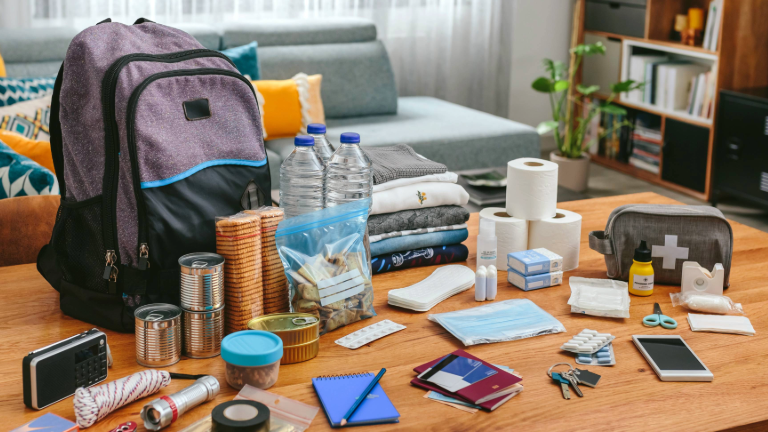Being prepared for an emergency is important for everyone, but older adults may have additional needs that require extra planning. Senior-specific emergency kits ensure that aging individuals have the necessary supplies to stay safe as well as comfortable as possible during unexpected situations, whether it’s a power outage, natural disaster, or the need to evacuate quickly. Having these essentials on hand helps reduce stress and makes it easier for caregivers and first responders to provide assistance when needed.
Senior-Specific Emergency Kit Must-Have: Essential Medications and Medical Supplies
Older adults often rely on daily medications to manage chronic conditions, making it necessary to include an ample supply in senior-specific emergency kits. Keeping at least a week’s worth of prescriptions in a waterproof container ensures access to necessary medications if refills are delayed. A list of current prescriptions, dosages, and doctors should also be included.
Medical equipment such as blood pressure monitors, glucose testing supplies, hearing aid batteries, and extra eyeglasses should also be part of the kit. For those who use oxygen tanks, mobility aids, or other specialized devices, backup power sources or manual alternatives should be available in case of an extended outage.
Important Documents and Emergency Contacts
In an emergency, having essential documents readily accessible can make all the difference. Copies of identification, insurance cards, advance directives, and emergency contact information should be stored in a waterproof pouch or container. A written list of phone numbers for family members, doctors, and local emergency services ensures that help can be reached even if a cell phone runs out of battery or gets lost.
For those with specific medical needs, a health summary detailing allergies, medical conditions, and special care instructions can help first responders provide appropriate treatment. Including a copy of any legal documents, such as power of attorney or a living will, ensures that care decisions can be made according to personal wishes.
Food, Water, and Comfort Items
Older adults may have dietary restrictions or medical conditions that require special food considerations. Non-perishable items such as low-sodium canned goods, protein bars, and meal replacement shakes should be included in senior-specific emergency kits. A supply of bottled water is essential, with enough to last several days in case of disruptions to municipal water systems.
Comfort items such as a warm blanket, non-slip socks, and an extra set of clothing make unexpected situations more manageable. Including familiar snacks, a small flashlight, and a battery-operated radio provides both practical support and a sense of security.
Mobility and Safety Considerations
For seniors who rely on mobility aids, keeping an extra cane, walker, or wheelchair accessory in an emergency kit can make evacuations easier. Non-slip mats and grab bars can provide additional stability in temporary shelter situations. Those with limited mobility should also have a whistle or personal alarm if they need to signal for help.
Emergency kits should be stored in an easy-to-reach location and checked regularly to ensure supplies remain current. Caregivers and family members should review the contents together to ensure nothing is missing and that all items are in good condition.


